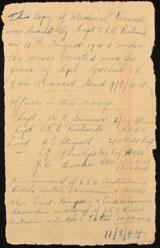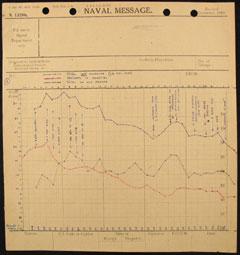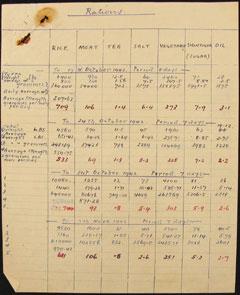Stolen Years: Australian prisoners of war - Survival
I had a wife and a little girl. And the will to live.
Snow Peat
I hated their guts, and I wanted to get home.
Geoff O’Connor
A strong emotion, hate or love, could help men get on the boat home.
Ray Mynors
Many prisoners of war asked how and why they had survived. Answers differed: some stressed military discipline, others individual initiative. Some stole and scrounged from guards and even from each other; most helped their mates and relied on them when things got tough. All needed luck.
Captain Rowley Richards, a medical officer on the Burma–Thailand Railway and in Japan, kept detailed notes and a diary documenting the experience of captivity. He used this material to write a memoir The Survival Factor. It is because of the determination of men like Richards to tell this story that we are able to understand what captivity was like.

Rowley Richards' diary
During his last days in Thailand, Rowley Richards made a six-sheet summary of his diary, sealed it in a beer bottle, and buried it under the grave cross of Corporal Sydney Roy Gorlick while on a work party on an island off the coast of Singapore. The diary was recovered by members of the War Graves Commission after the war and returned to Rowley, two and a half years after it was buried.
RC00974


Records kept by Captain Rowley Richards while a doctor on the Burma–Thailand Railway.
RC00972–73
Prisoners of the Japanese
- Surrender
- Changi
- The Burma-Thailand Ralway
- Survival
- Ambon & Hainan
- Sandakan
- Outram Road
- Nurses
- Civilian internees
- Witness
- War Crimes